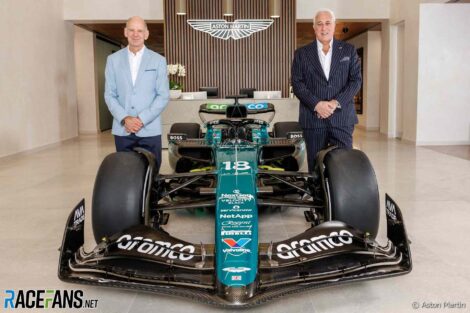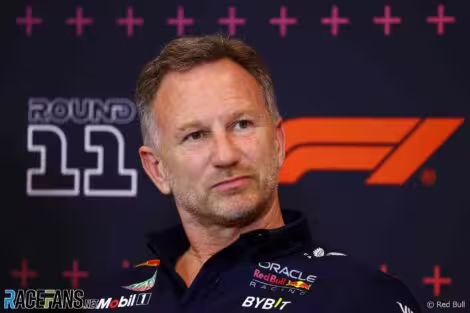The controversy which surrounded Red Bull team principal Christian Horner earlier this year “had an impact” on their staff, according to a long-serving ex-F1 engineer.
Julien Simon-Chautemps, whose F1 roles included three years as Kimi Raikkonen’s race engineer, believes the allegations around Horner’s behaviour influenced the departure of Red Bull’s long-serving chief technical officer Adrian Newey.
Horner was cleared of inappropriate behaviour towards a team member by an internal investigation. The employee’s appeal against the decision was dismissed in August.
Some of Red Bull’s rivals linked the departure of Newey, widely regarded as F1’s best designer, to the investigation of Horner. McLaren Racing CEO Zak Brown said in May Newey is “a very high-integrity individual” and “I’m not surprised he’s moving on.” Horner firmly denied claims the two were connected.
Simon-Chautemps downplayed the impact of Newey’s departure, pointing out other highly-rated designers remain at the team such as technical director Pierre Wache. “I’m not going to try to diminish Adrian’s fame and what he has achieved in the sport, but it’s fair to say that I mean F1 in the nineties is not F1 anymore now,” he told the Business of Winning. “It’s not a single manager anymore.
“A lot of people have said it, but I’m a firm believer that a Formula 1 team needs a very good technical director, but he’s not doing everything on his own. Adrian had a lot of people around him, very good people in Red Bull, I’m thinking of Wache as a technical director, he has a lot of really good guys in aero, and I doubt he would have been able to win all these championships on his own. So yes, an extremely important guy in the organisation, but he’s not the only answer to the success.”
He also doubts the team’s slump in performance since the mid-season is a consequence of Newey’s departure, which was announced in May.
Advert | Become a RaceFans supporter and
“Red Bull were winning relatively easily, very easily last year. The rules haven’t changed that much for ’24. If you look at the development path of an F1 team it’s quite flat because, yes, you can improve and compete, but it’s quite difficult to make a huge improvement.

“They clearly tried to improve an already very…
Click Here to Read the Full Original Article at RaceFans…

